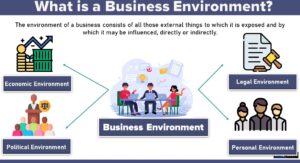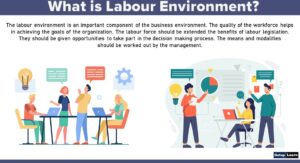Table of Contents
- 1 What is the need of workers participation in management?
- 2 What is Worker Participation in Management (WPM)?
- 3 Levels of Workers Participation in Management
- 4 Industrial Relations and Disputes
- 5 Causes of Industrial Disputes
- 6 FAQ Related to Worker Participation and Industrial Relations and Disputes
What is the need of workers participation in management?
In this article, we will be going through the basic concept of worker participation and industrial relations and disputes that is only possible when labourers are experienced and educated to understand the changing technological comes; dynamics and complex business systems. And we will also be going to study the causes of industrial disputes or conflict.
What is Worker Participation in Management (WPM)?
Workers’ participation refers to a person’s mental and emotional involvement in a group situation that obliges them to contribute to the group’s goals and share responsibility for achieving them.
Or to be more precise the concept of participation means sharing the decision-making power by the rank and file of an industrial establishment through their representatives, at all the appropriate levels of organization in the entire array of managerial action.
Levels of Workers Participation in Management
We have discussed here the levels of workers participation in management:
- Informative Participation of Workers
- Consultative Participation of Workers
- Associative Participation of Workers
- Administrative Participation of Workers
- Extensive Participation of Workers
Informative Participation of Workers
This shows the management’s information distribution with workers on things which are directly related to labour. Balance Sheet, production, the economic condition of the plant, etc. are examples of such items.
It is important to note that here workers have no right to close scrutiny of the information provided and management has its prerogative to make decisions on issues concerned with workers.
Consultative Participation of Workers
In this type of participation, workers are consulted on those matters which are associated with them. Here, the role of workers is restricted to giving their views only. However, acceptance and non-acceptance of these views rest on management.
Nonetheless, it provides an opportunity for the workers to express their views on matters involving their interests.
Associative Participation of Workers
The role of the works council is not only advisory but also advisory. In a way, it is an advanced and improved form of consultative participation. And because of that, the management is under a moral obligation to acknowledge, accept and implement the unanimous decision of the council.
Administrative Participation of Workers
In the administrative participation, decisions are already taken are executed by the workers. Compared to the former three levels of participation, the degree of sharing authority and duty by the workers is absolutely more in this participation.
Extensive Participation of Workers
Here, the decisions are taken together by the management and the workers of an administration. The fact is, this is the ultimate level of workers’ participation in management.
Industrial Relations and Disputes
What are Industrial Relations?
Industrial relation is a complicated web of the relationship between employees and employers, employee and employee and employers to employers and the relation of all of these three factors with state and other stakeholders.
In other words, industrial relations involve attempts to find a solution between conflicting goals and values; between the motive of profit and social gain; discipline and freedom, authority and industrial democracy; bargaining and cooperation; and conflicting interests of the individual, the group and the community.
What are Industrial Disputes?
Industrial dispute means any dispute or difference between employers and employers or between employers and workers or between workers and workers related to employment or unemployment or to a person’s employment or working conditions.
Industrial disputes are symptoms of industrial unrest as well as seeds are symptoms of a turbulent body.
Causes of Industrial Disputes
The causes of industrial disputes or conflicts are as follows:
- Conflict of Interests
- Wages
- Dearness Allowance and Bonus
- Working Conditions and Working Hours
- Modernisation and Automation of Plant and Machinery
- Denial of Recognition to Trade Unions
- Defective Recruitment Policies
- Unproductive Leadership
Conflict of Interests
All the issues are emerging from this one point of conflicts of interests, can there be a change in what you want to achieve? For the labour, it may be different and for the employers, the goal post may be different, most of the time the goals are contrasted in nature.
Wages
The demand for wage increases is the primemost cause of industrial disputes. Many strikes have been organized to raise the voice against rising prices and the cost of living.
Firms may acknowledge their demand but many times firms do not because of the fear of losing the profit ratios or they may be not in a position to increase the wages that they are paying now. These types of problems arise most in developing and under-developing countries.
Dearness Allowance and Bonus
The inflation situation inflicts higher costs and increases the expenditure of workers. This was the main cause of the demand for dearness allowance by the workers to compare their wages with the rise in prices.
Working Conditions and Working Hours
The working conditions in the Indian industry are not proper. There are not many provisions for water, heating, lighting, safety etc. Working hours are also greater. The demand for palatable working conditions and shorter hours of work are also responsible for labour disputes.
Modernisation and Automation of Plant and Machinery
The effort at upgrading and introducing automatisation to replace labour has been the key reason for disputes in India. employees go on strike, off and on, to resist rationalisation and automation.
Denial of Recognition to Trade Unions
If the employer is not able to identify the trade unions or identify the rival union for representation, insults of trade union leaders by the workers are some of the examples of autocratic managerial attitudes worth mentioning as the causes of industrial disputes or conflicts.
Defective Recruitment Policies
The staffing practices in Indian industries are faulty. Staffing is usually made by the suppliers who exploit the workers and suppress their individuality. The faulty campaign, devaluation, transfer and appointment procedures encourage dissatisfaction among workers.
Unproductive Leadership
Unproductive leadership is also an important cause of disputes. Leadership must inspire workers to work harder and efficiently. The problems of workers must be understood by the leaders and addressed so that can create an improved environment in which the possibility of disputes goes away.
What is Worker Participation in Management?
Workers’ participation refers to a person’s mental and emotional involvement in a group situation that obliges them to contribute to the group’s goals and share responsibility for achieving them.
What are Industrial Relations?
Industrial relation is a complicated web of the relationship between employees and employers, employee and employee and employers to employers and the relation of all of these three factors with state and other stakeholders.
What are Industrial Disputes?
Industrial dispute means any dispute or difference between employers and employers or between employers and workers or between workers and workers related to employment or unemployment or to a person’s employment or working conditions. Industrial disputes are symptoms of industrial unrest as well as seeds are symptoms of a turbulent body.
What are the Causes of Industrial Disputes?
The causes of industrial disputes or conflicts are as follows:
1. Conflict of Interests
2. Wages
3. Dearness Allowance and Bonus
4. Working Conditions and Working Hours
5. Modernisation and Automation of Plant and Machinery
6. Denial of Recognition to Trade Unions
7. Unproductive Leadership
8. Defective Recruitment Policies etc.




